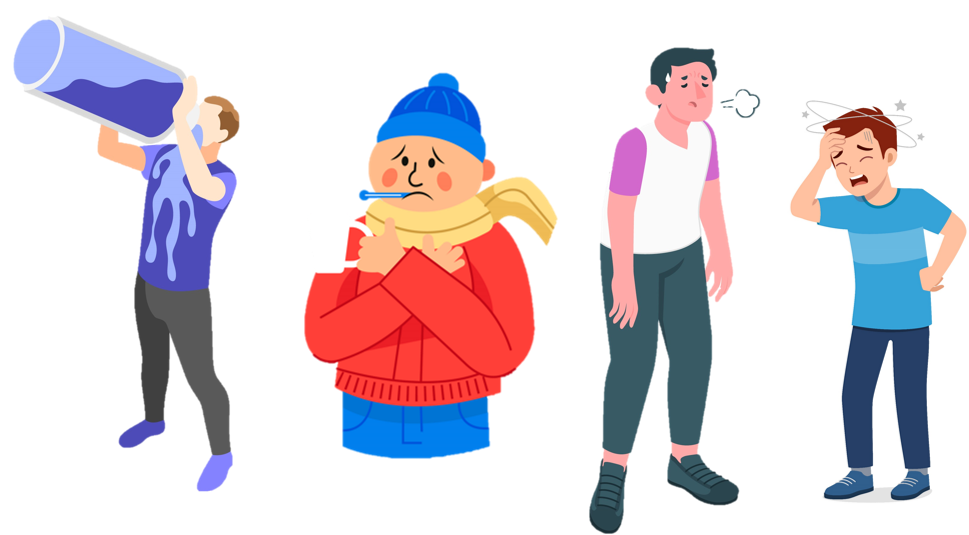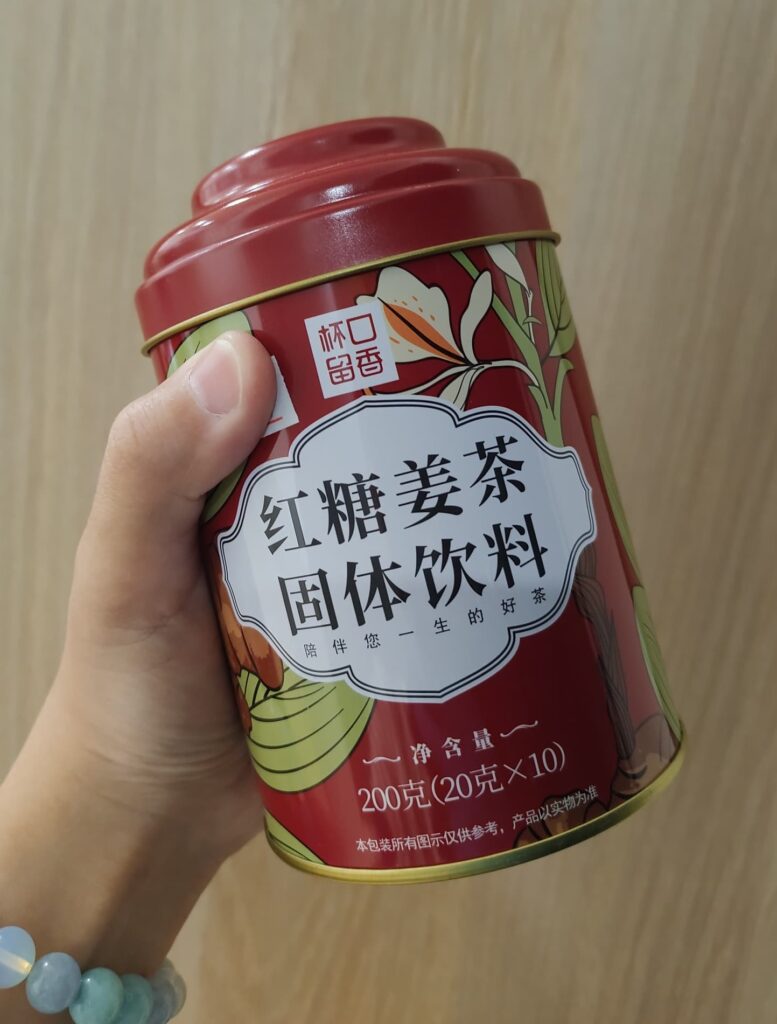
People often complain that their constitution is ‘weak and cannot be nourished.’ They might develop symptoms like mouth ulcers, insomnia, bloating or diarrhea even after consuming a small amount of health supplements. Why does this happen?
Health supplements, as the name suggests, are foods or medicines that nourish the body.
Proper intake of supplements can enhance the body’s disease resistance and reduce the risk of illnesses, aiding those who are sick to recover better. Therefore, some people view taking health supplements as an investment in their health.However, this understanding is not comprehensive because not everyone requires supplements. Blindly taking them or taking them improperly can lead to adverse effects instead of benefits.
‘Weak and cannot be nourished’ is a typical issue resulting from improper supplementation.
This term refers to certain middle-aged or elderly individuals with weak constitutions or chronic illnesses. Due to reasons such as weak spleen and stomach or spleen deficiency leading to dampness and poor metabolic functions, after taking health supplements, they not only fail to reap the expected benefits but also experience symptoms like poor appetite, indigestion, abdominal distension, nausea or vomiting.

So, what causes this phenomenon?
1. Weakness of the Spleen and Stomach

The weakness of the spleen and stomach is the primary reason leading to the condition of ‘weak and cannot be nourished.’ Due to the poor digestive and metabolic functions of the stomach and spleen, and given that many health supplements tend to be nourishing and rich, after consumption, they are not well digested and absorbed. Instead, they increase the burden on the gastrointestinal tract, leading to symptoms like indigestion.
For those who cannot be nourished effectively, dietary therapy can be initially used to nurture the spleen and stomach.
The dietary principles involve a diverse range of foods, rich in nutrients yet easily digestible. The diet should be warm and soft. Preferred foods include fish, lean meat, chicken, dairy products, tofu, lotus seeds, barley, lily bulbs, Chinese yam, dates, walnuts, etc. Fresh vegetables and fruits should also be consumed in moderation. It’s best to eat smaller portion, frequent meals, ensuring each meal is only about 70-80% full.
Elderly individuals or those with weak constitutions and weak spleen and stomach should reduce the intake of raw, cold, greasy, fried, grilled, and smoked foods, as well as items that are likely to cause bloating. Spicy and stimulating foods should also be consumed sparingly or avoided. Once the gastrointestinal functions recover and the spleen and stomach are in optimal condition, the path will be paved for effective nourishment in the future.

2. Inappropriate Supplementation
When taking health supplements, it’s crucial to make a differential diagnosis. Firstly, one should understand their own constitution before selecting the appropriate supplement based on the identified condition. Otherwise, blindly supplementing without a proper diagnosis will naturally yield little to no effect. Before embarking on a supplementation regimen, it’s advisable to consult an experienced TCM Practitioner to determine whether one’s constitution leans towards Yin deficiency, Yang deficiency, Qi deficiency, or Blood deficiency. Once there’s a clear understanding of one’s constitution, the goal of supplementation becomes evident.

TCM holds the belief that “one herb has one nature, a hundred diseases have a hundred remedies.” Each type of supplement is suitable for specific constitutions and conditions. Due to differences in age, physical condition, ailments, seasons, and individual constitutions, there isn’t a universal supplement that addresses all health issues. Supplementation must be tailored to the individual, considering the person, timing, ailment, and location. Only by adhering to the principles of differential diagnosis and treatment, careful observation, comprehensive analysis, and judicious combination can the supplements be effective.
3. Inappropriate Dosage
When considering supplementation, it’s essential to determine the appropriate dosage based on an individual’s constitution, age, and other specific factors. A dosage that is too small may not produce the desired effects, while an excessive dosage can lead to adverse reactions. This is particularly critical for individuals with weak spleen and stomach functions. For elderly patients with chronic illnesses and weakened constitutions, supplementation should be moderate and gradual, focusing on harmonizing Yin and Yang, and ensuring the smooth flow of Qi and Blood. It’s crucial not to rush or over-supplement in hopes of quick results. It’s best to start with a smaller dosage and gradually adjust to the optimal level. Additionally, supplements should be chosen for their mild nature, ensuring nourishment without stagnation and enrichment without greasiness. Extreme cold or hot and overly pungent substances are generally not suitable for the elderly.
4. Initial Encounter with External Pathogens

The most common initial symptom of encountering an external pathogen is a cold, characterized by symptoms such as fever, aversion to cold, and coughing. When the body is invaded by external pathogens, the body’s vital energy must battle against the pathogenic energy. The immediate priority is to bring the vital energy to the body surface to expel the pathogenic energy. If one focuses only on nourishing the vital energy without addressing the cold pathogenic factor, it may exacerbate the condition and prolong the illness. Therefore, after sensing the invasion of an external pathogen, it’s generally advisable to use pungent medicines to disperse and expel the pathogen. For instance, if one feels cold due to a weakened constitution, they might first consume some ginger and brown sugar tea to dispel the cold before considering nourishment.

5. Over-supplementation and Excessive Nourishment

When taking supplements, it is crucial to do so in moderation. Exceeding the appropriate dosage can lead to discomfort. Ginseng, known for its potent nourishing properties and considered a top-grade supplement, can cause symptoms of overuse if not taken properly or over an extended period. This includes symptoms like agitation, insomnia, loss of appetite, and elevated blood pressure, referred to as ‘ginseng abuse syndrome.’ Therefore, when supplementing, it’s essential to know when to stop. Just as one should cease taking medication when they are well, the same principle applies to supplementation. For children and teenagers who are in a phase of growth and development, the focus should be on nurturing the spleen and stomach, rather than indiscriminate supplementation. Otherwise, improper supplementation can not only lead to poor digestion and absorption but also potentially induce issues like precocious puberty. Hence, caution is paramount.”
6. Improper eating method
Regardless of medicinal or dietary supplements, the method of administration should always be given careful consideration. When taking medicinal supplements, it’s crucial to select an appropriate form of dosage. Incorrect administration can lead to various discomforts or anomalies.
For pills or powders, they should be taken with warm water. Similarly, liquid preparations should also be taken warm. Ideally, one should stand while taking medication for optimal absorption. Avoid administering with tea, alcohol, beverages, milk etc.
When preparing decoctions, always follow the doctor’s instructions and be aware of any contraindications. For instance, using strong tea as a medium can diminish the efficacy of the supplement due to the tannins present in the tea, which may interfere with the active ingredients of the supplement.
In summary, when taking supplements, one must be purposeful and targeted. As the renowned Qing Dynasty physician Yu Tinghong once said, “When treating an illness, one must not indiscriminately supplement; a day’s misguided supplementation can lead to ten days of regret.” Therefore, if discomfort arises after consuming a supplement, one should immediately cease the supplementation, consult a qualified TCM practitioner, and only after receiving professional advice should one gradually resume supplementation. It is crucial not to take supplements in excessive doses or for prolonged periods without proper guidance, as this may exacerbate existing discomforts.
此文章还有以下语言版本:
![]() 简体中文 (Chinese (Simplified))
简体中文 (Chinese (Simplified))



